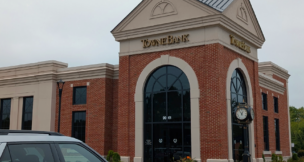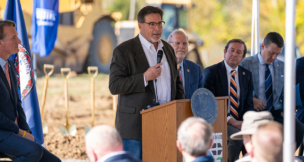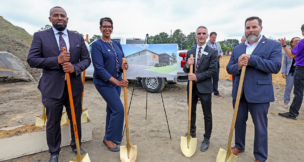Living Legends 2023: GILBERT T. BLAND
As Urban League of Hampton Roads president and chairman, Bland guides an organization focused on enabling African Americans and others in Hampton Roads to secure economic self-reliance, parity, power and civil rights through its services and programs. As a James Madison University student, the Harrisonburg native was a standout who ran track, was a charter […]
Gilbert Bland to receive Civic Leadership Institute award
Urban League of Hampton Roads President and CEO Gilbert T. Bland will receive the Civic Leadership Institute’s 2022 Individual Darden Award, the Norfolk-based nonprofit organization announced Thursday. “Over the last three decades, I have joined with many to build upon the efforts of countless, often unsung, past leaders to help improve the lives and build […]
Leadership lessons
Warren Thompson got his start as an entrepreneur at age 16, buying out his family’s hog business. It was a sideline enterprise his father had started at their home in the Blue Ridge Mountains to supplement his income as a teacher. Today, Thompson is the president and chairman of Reston-based Thompson Hospitality Corp., the nation’s […]













